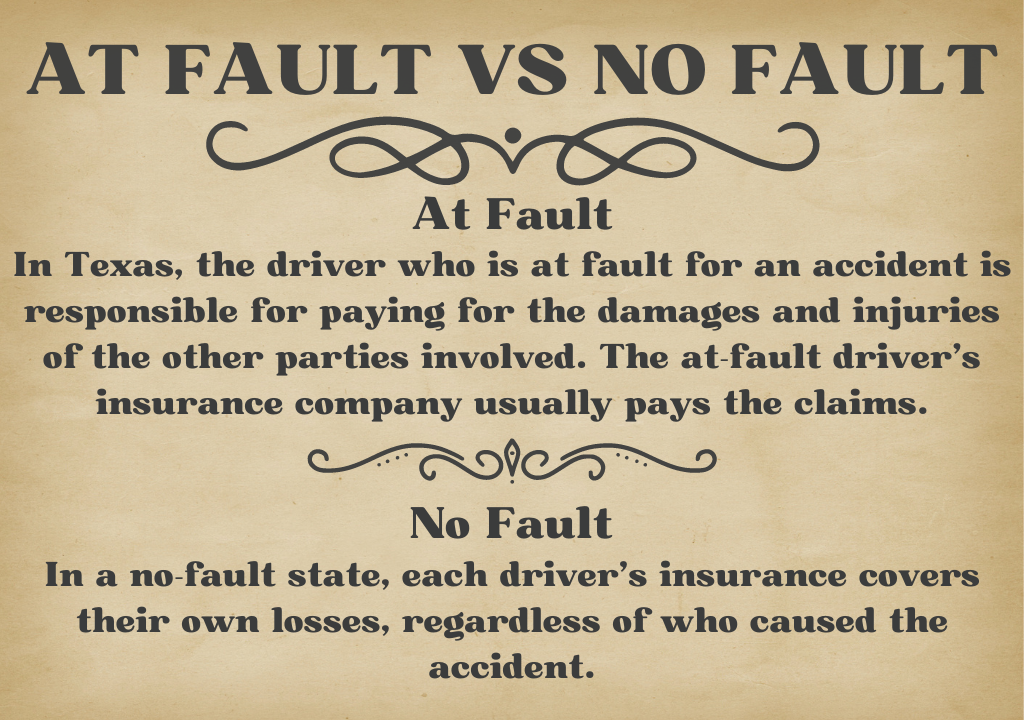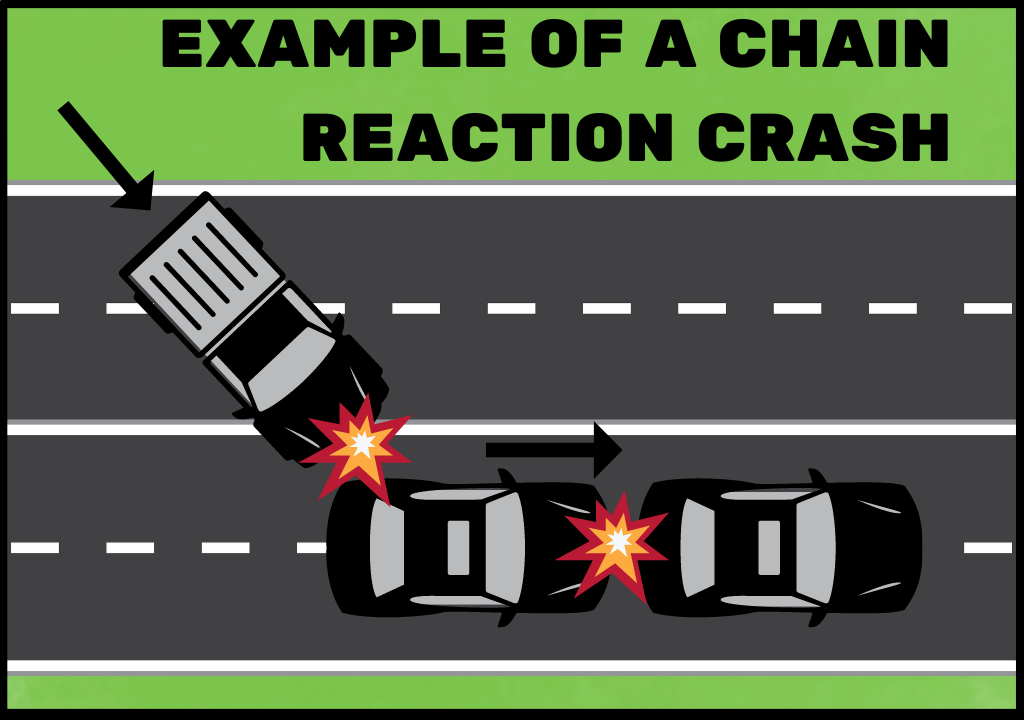Who Is At Fault? Uncover How It’s Determined in Texas Car Accidents
Introduction to Determining Fault in Texas Car Accidents
The Importance of Establishing Fault
Establishing fault in a Texas car accident is crucial as it directly impacts the claims process and compensation. When fault is clearly determined, the responsible party’s insurance is typically expected to cover the damages. Without establishing who is at fault, getting the compensation needed for recovery can be challenging.
Overview of Texas Car Accident Laws
Texas law requires drivers to carry a minimum amount of liability insurance to cover damages for which they are responsible. If you’re involved in a car accident in Texas, it is important to understand that the state follows a fault-based insurance system. This means the person who is found to be responsible for causing the accident is also responsible for the damages. Texas laws are designed to ensure that victims receive compensation for their losses, but it’s up to the involved parties to prove who was at fault.

The Legal Framework of Fault in Texas
Understanding Comparative Negligence
Comparative negligence is a legal concept that applies when multiple parties share the blame for an accident. In Texas, as long as you are not more than 50% responsible for an accident, you can still recover damages. However, your compensation will be reduced by the percentage of fault assigned to you. This system ensures that each party pays their fair share and recognizes the complex nature of many accidents where fault isn’t straightforward.
Role of State Laws in Traffic Accidents
State laws play a pivotal role in traffic accidents, setting the rules of the road, and serving as the standard for determining fault. In Texas, if a party violates a traffic law—such as speeding, making an unsafe lane change, or driving under influence—they’re likely to be considered at fault. Adherence to traffic laws is expected, and any breach can be crucial evidence in proving a negligence claim and assigning liability for the accident.
Investigating the Accident Scene
Police Reports and Their Influence
Police reports are significant in the aftermath of a Texas car accident, as they provide an objective assessment of the incident. They typically include the officer’s observations, statements from those involved, road conditions, and may contain the officer’s opinion on who was at fault. While not definitive, these reports carry weight with insurance companies and courts, as they often form the foundation for subsequent investigations and fault determinations.
Collecting and Analyzing Evidence
Gathering evidence is the cornerstone of building a strong car accident case. Collecting details from the scene, such as photos of vehicle positions, skid marks, traffic signs, injuries, and damages, helps reconstruct the event. Moreover, analyzing this evidence with an expert’s eye can identify contributing factors like weather, road conditions, and vehicle malfunctions, which are vital for establishing the fault in a Texas car accident.
Insurance Companies’ Role in the Aftermath
How Insurers Assess Accident Claims
Insurers begin assessing claims by reviewing the accident documentation, including the police report, photographs, and witness statements. They look for consistencies in the stories from both parties involved and any third-party witnesses. Insurance adjusters also examine the damage to the vehicles as it can give insights into the accident’s dynamics. The goal is to determine which driver’s actions contributed to the crash and thus, who bears the fault.
Strategies Insurance Adjusters Use
Insurance adjusters are trained to save their company money, often employing strategies that can lead to lower compensation payouts. They may attempt to get you to admit fault or say something that could be used against you. Adjusters might also offer a quick settlement, hoping you’ll accept before understanding the full extent of your damages or injuries. Being aware of these tactics can help you protect your rights and ensure you’re fairly compensated.

When to Get a Lawyer Involved
Benefits of Legal Representation
Having legal representation can significantly boost your chances of a favorable outcome after a car accident in Texas. Lawyers bring expertise in negotiating with insurance companies and can steer the process towards a fair settlement. They ensure your rights are protected, preventing insurers from undervaluing your claim. A lawyer also comprehends the intricacies of Texas law, which is essential for advocating on your behalf effectively.
How Attorneys Help Maximize Your Settlement
Attorneys have the know-how to maximize your settlement by thoroughly evaluating the impact of your injuries and other losses. They can calculate not only current expenses but also future costs like ongoing medical care and lost earning potential. Lawyers are skilled in presenting this information to justify a higher compensation amount and have the negotiation prowess to counter lowball offers, ensuring you receive a settlement that truly reflects your needs.
Evidence That Can Determine Fault in Texas
Common Types of Evidence in Car Accident Cases
In car accident cases, the most common types of evidence include:
- Photographs and Videos: Pictures of the accident scene, vehicle damage, and any injuries. Videos from dash cameras or surveillance footage can also be crucial.
- Witness Statements: Accounts from people who saw the accident happen.
- Police Reports: Official reports often contain vital information about the accident, including law enforcement’s initial assessment.
- Medical Records: Documentation of injuries directly tied to the accident which helps to establish the extent of harm and related costs.
- Cell Phone Records: They can show if a driver was distracted at the time of the accident.
Gathering these pieces of evidence promptly is key as they form the backbone of any claim or lawsuit following an accident.
Expert Witnesses and Forensic Analysis
Expert witnesses and forensic analysts offer specialized knowledge that can clarify complex aspects of car accident cases. They examine medical records, analyze eyewitness statements, review photos, and study police reports to reconstruct the accident. Their testimony helps establish the sequence of events and can identify the liable party. Forensic analysis, in particular, often provides the technical details necessary to understand the crash mechanics, like the speed of the vehicles and the point of impact.

Navigating Through Multiple Drivers Scenarios
Determining Fault With Several Vehicles Involved
Determining fault in multi-vehicle accidents in Texas requires meticulous investigation. Each driver’s actions are scrutinized to see who violated traffic laws or acted negligently. Factors like the sequence of impacts, the positions of the vehicles, and skid marks on the road are all crucial. The driver who caused the initial collision is often found at fault, but others may share responsibility if their actions contributed to the severity or spread of the accident’s outcome.
Intersection of Traffic Laws and Accident Reconstruction
The convergence of traffic laws and accident reconstruction provides a comprehensive framework for determining fault in complex car accidents. Traffic laws serve as the baseline for expected driver behavior, while accident reconstruction uses scientific analysis to piece together the event. When both are utilized, it becomes clearer which actions were legal and which were not. This powerful combination is often used in court to establish fault beyond the initial findings at the accident scene.
FAQ Section
Who Is at Fault When Both Drivers Break Traffic Laws?
When both drivers break traffic laws, Texas applies comparative negligence to determine fault. Each driver’s actions are assessed, and a percentage of fault is assigned based on their level of negligence. Even if you broke a law, you could still recover damages if the other driver was more at fault, but your compensation will be reduced by your share of the fault.
Can a Passenger Be at Fault in a Car Accident?
Yes, a passenger can be at fault in a car accident if their actions contributed to the incident. For example, if a passenger grabbed the steering wheel, leading to a crash, they may bear some responsibility. However, it is less common for passengers to be held liable in car accidents compared to drivers.
What Is the Time Limit for Filing a Claim in Texas?
The time limit, or statute of limitations, for filing a car accident claim in Texas is two years from the date of the accident. If you don’t file within this period, you may lose your right to seek compensation for your injuries or damages.
How Does Comparative Negligence Affect My Compensation?
Comparative negligence affects your compensation by reducing the amount you can recover based on your percentage of fault. If you’re found to be partly responsible for the accident, your total compensation will be decreased by that same percentage. However, if your fault is above 50%, you cannot recover any damages under Texas law.
Lawyer Image by LEANDRO AGUILAR from Pixabay
All we do is fight for injured victims. And we do not accept defeat.
(512) 996-6369
help@dfoxlaw.com
Address
206 W. Main Street #108, Ste B, Round Rock
TX 78664
